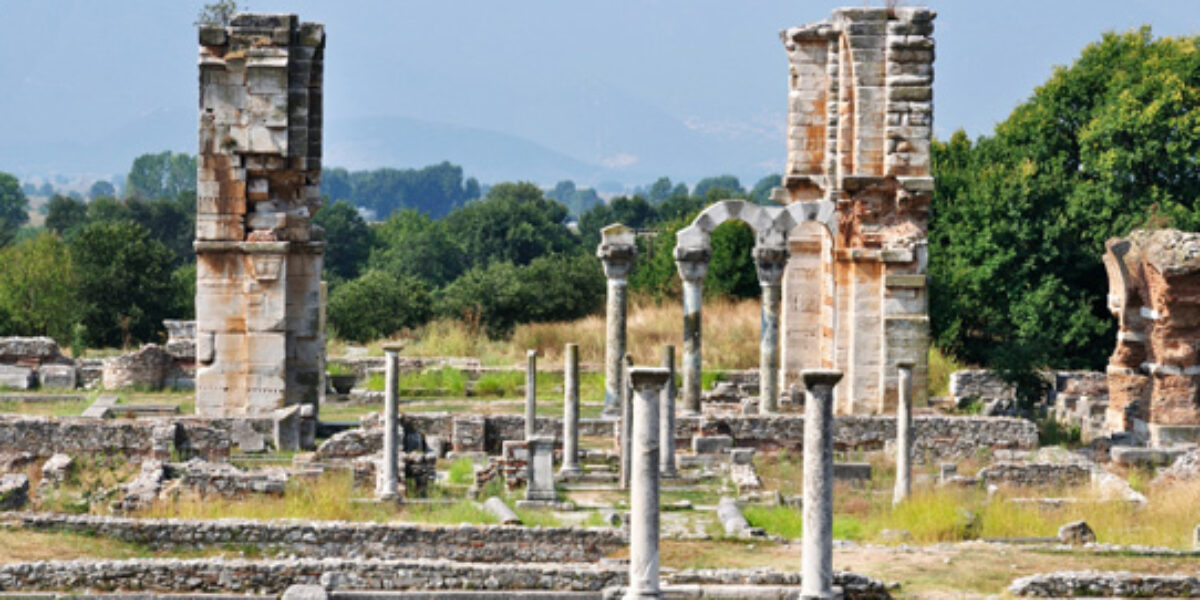Written as a “thank you” note to Paul’s friends in Philippi, this book also contains passages on the importance of humility and living like Christ.
What makes Philippians special?
The apostle Paul wrote this letter to the Lord’s followers at Philippi while he was in jail in a city he does not name. Even though he faced difficult times, Paul wanted to remind the Philippians to remain faithful to the good news about Christ that Paul had first preached to them (Acts 16:12-40; Philippians 4:15-17). Paul reminds the Philippians that they may have to face suffering, just as he has suffered (1:30; 2:17,18), but they should not be afraid of such suffering, since “Christ gives the strength to face anything” (4:13). Paul’s strong words of faith in this short letter have given encouragement to Christians ever since it was first written.
Why was Philippians written?
Paul wanted to thank the Philippians for helping him with their gifts and prayers (1:5; 4:10-19) and to tell them what had been happening to him since he was arrested by the Romans. Paul was also aware of problems among the followers in the church he had organized at Philippi some time earlier. The Christians there were arguing about whether or not the new followers of Jesus needed to obey the Law of Moses (3:2-11).
What’s the story behind the scene?
The author of Acts reports that Philippi was the very first city Paul visited after he crossed over to southeastern Europe from Asia Minor (Acts 16:11,12). Philippi was an important city of Macedonia, located on the eastern end of the major highway called the Egnatian Way, which merchants and the Roman army used to carry goods and supplies between the eastern part of the empire and the capital city of Rome in the west. Philippi was named after Philip II, the father of Alexander the Great. Philip made the city into a fortress and the capital of his growing kingdom in the fourth century B.C.
Philippians is considered one of Paul’s Prison Letters (along with Ephesians, Colossians, and Philemon) because it was most likely written by Paul from jail. It is not known exactly how many times Paul was in jail or in how many different places. Acts, however, says that Paul was imprisoned in Ephesus (Acts 19:1-21) and Caesarea (Acts 24:24-26:32), and was under house arrest in Rome (Acts 28:11-30). Paul may have written Philippians from one of these cities or from some other city in the eastern Mediterranean, where Roman guards were stationed (1:13).
How is Philippians constructed?
Paul begins his letter with a Christian form of the words of greeting traditionally used in formal Greek letter writing, and he ends with a final greeting (4:21-23). As in many of Paul’s letters, the introduction is followed by prayers of thanksgiving for the people he is writing to. In the rest of the letter Paul gives news about his present situation, offers advice and encouragement to the Philippian Christians, and expresses his thanks for the help they had given him in the past. Philippians can be outlined in the following way:
Paul greets and gives thanks for the Philippians (1:1-11)
Paul begins with a formal greeting often used in Greek letter writing. As in many of his letters, he follows his greeting with a prayer of thanksgiving for those he is writing to.
Living for Christ, God’s humble servant (1:12-2:18)
Even though Paul was in jail, he continued to share the good news about Christ. Whether he lived or died or suffered, he would be with Christ. He encouraged the Philippian Christians to face suffering with the same hope. Paul reminds the recipients of his letter about how Jesus became a servant, and encourages them to follow Christ’s example and to live as “lights” in the world.
Encouragement and advice (2:19-4:9)
Paul tells the Philippian Christians that he is going to send two trusted friends, Timothy and Epaphroditus, to give them encouragement. He also warns them about following people who are insisting that new followers must live by the Law of Moses. He uses his own life as an example to show that faith in Christ is the most important thing, and to encourage them to live as God’s children.
Final words of thanks and greeting (4:10-23)
Paul prays that God will take care of the needs of the Christians in Philippi in the same way they took care of Paul’s needs in the past.




